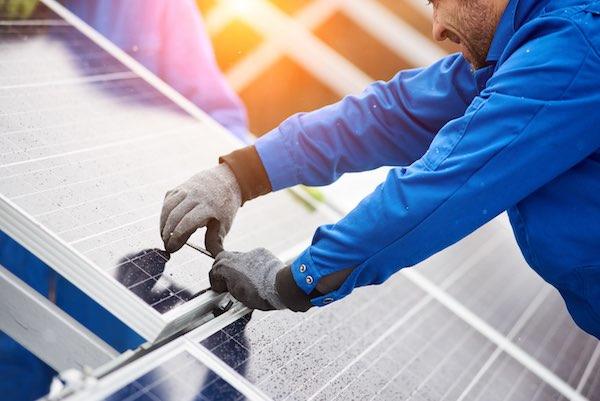
PRESS RELEASE
For Immediate Release – April 18, 2019
Contact: Sean Cooley, Communications Director, (850) 222-2473, FLConservation@audubon.org
Twitter: @AudubonFL
TALLAHASSEE, Fla. - Today, the National Audubon Society filed an appellate brief (link when available) with the Florida Supreme Court to protect voters from misleading ballot language proposed by a special interest group in ballot measure #18-10: “Right to Competitive Energy Market for Customers of Investor-Owned Utilities; Allowing Energy Choice.” The measure’s misleading language may unintentionally deceive voters into thinking they’re voting for choice in energy production. It also threatens existing conservation laws and policies by requiring the repeal of “inconsistent statutes, regulations and orders.”
“This ballot measure is a wolf in sheep’s clothing,” said National Audubon Society Vice President and Audubon Florida Executive Director Julie Wraithmell. “Voters have a right to know exactly what this measure will do, and the current ballot language is misleading and incomplete. We are urging the Florida Supreme Court to see through this ploy.”
Audubon’s four main concerns are:
- Use of the terms “allowing energy choice,” which may mislead voters into thinking they can choose how their energy is generated. When actually it only means they get to choose the provider.
- The ballot language may complicate the ability of Floridians who have solar panels to sell surplus electricity back on to the grid—known in the industry as “net metering”. Net metering is essential to increasing rooftop solar energy generation in Florida—an important part of reducing our state’s dependence on fossil fuel energy generation.
- The ballot language fails to disclose how it would complicate Florida’s utility structure for consumers, all while risking important progress towards renewable energy.
- Floridians are about to get the benefit of more than 6,000 MW of new solar power in the next five years alone—commitments that will not be realized if investor-owned utilities are required to sell off their clean energy facilities.
“Florida is already feeling the effects of climate change—tidal flooding and erosion, catastrophic storm events, and harmful algal blooms aggravated by warming ocean temperatures,” Wraithmell continued. “We must not only adapt to climate change but mitigate for the worst of its effects. Florida must be bold in its expansion of renewable energy. This amendment would have the opposite effect.”
Florida is finally seeing a dramatic expansion in its renewable energy development, particularly in the form of industrial-scale solar facilities being installed by the existing investor-owned utilities.
Just last month, The Solar Foundation announced that Florida added the highest number of solar energy jobs in the nation and noted a 25 percent increase in solar installation jobs in one year alone.
“Our ability to temper the worst impacts of climate change hinges on how quickly we move to renewable energy sources in the next 10 years,” said Renee Stone, National Audubon Society’s Climate Vice President for Climate. “The passage of this amendment would stifle large-scale renewable energy development and rooftop net metering in the very window of time when we should be doing everything possible to incentivize renewable development.”
This proposed ballot measure does not meet Florida’s high standard for clarity, misleads voters, and threatens clean energy expansion in Florida. That is why Audubon Florida, joined by The Nature Conservancy (Florida Chapter), filed today’s brief and asked the Florida Supreme Court to keep the misleading measure off the ballot.
###
Disclosure: Audubon Florida’s 28-person advisory board includes an employee of Florida Power & Light. FPL has made philanthropic gifts to Audubon Florida and Florida Audubon Society.
About Audubon Florida: For more than a century Audubon has encouraged people to take care of the places that make Florida special. Using science to guide our priorities and birdlife to measure ecosystem health, Audubon advocates for the protection of land, water, and wildlife. Audubon is Florida’s most influential conservation organization and conducts extensive work to protect the Everglades and coastal bird habitats. We manage sanctuaries covering thousands of acres along with two popular nature centers. Audubon promotes stewardship and appreciation of public land and water so people experience and cherish Florida’s natural beauty and wildlife. Audubon prides itself on advancing sophisticated, durable policy solutions informed by science and supported by its broad grassroots membership.



